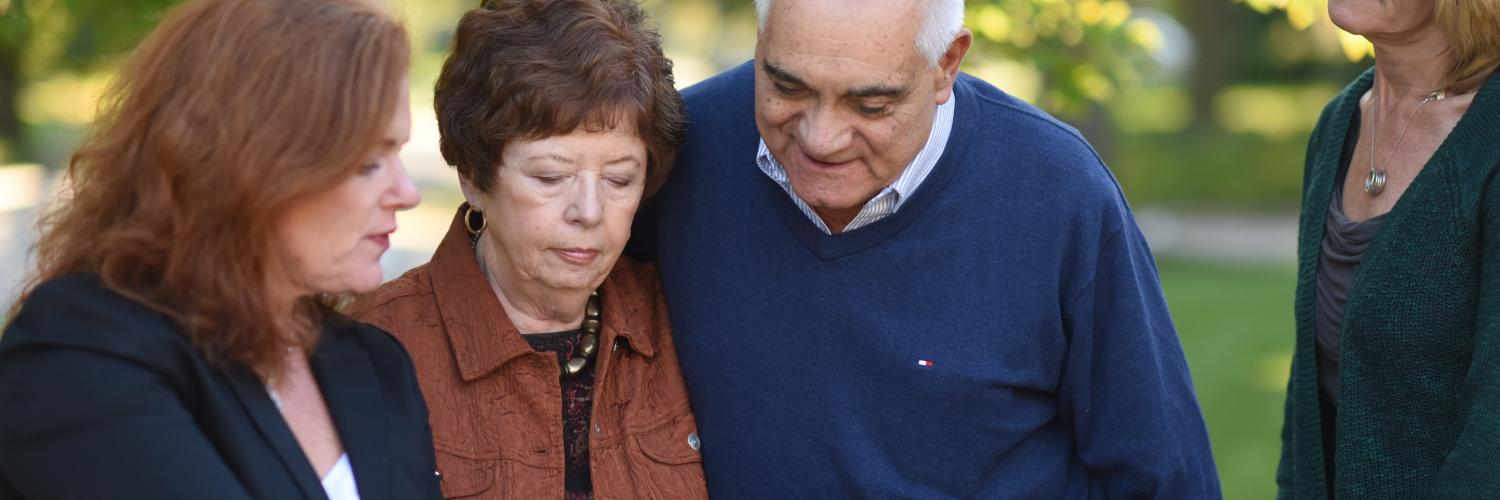It was a beautiful July afternoon, and I was sitting on the deck overlooking the lake, listening to the children swimming, splashing, and jumping. My phone rang, and as any small business owner would do, I answered it. It was Carol, and she was frantic. Her mom had recently been diagnosed with Dementia, and Carol and her sister did not think their mom, Ruth, was able to be alone any longer. Carol had called no fewer than 10 memory care communities and had found no one who had availability and could take Ruth.
What is Dementia?
As defined by the Alzheimer’s Association, “Dementia is not a specific disease. It’s an overall term that describes a group of symptoms associated with a decline in memory or other thinking skills severe enough to reduce a person’s ability to perform everyday activities. Alzheimer’s Disease accounts for 60 to 80 percent of cases. Vascular Dementia, which occurs after a stroke, is the second most common dementia type.”
Did Ruth Need Memory Care?
When Carol told me which communities she had recently contacted, I was very confused because I knew that many of them did have availability because I had recently talked to them regarding other clients. As I talked with Carol and asked more questions regarding Ruth and her situation, I learned that it was quite possible that she did not need memory care, at least not yet. But because Ruth had a “Dementia” diagnosis, Carol immediately thought that Ruth needed memory care and that was what she was asking for when she called the various communities.
Many assisted living communities provide multiple levels of care ranging from lighter assistance to memory care.
Although Ruth was no longer remembering to shower, wasn’t taking her medications as prescribed, and wasn’t capable of making meals for herself any longer, Ruth was still in the early to moderate stage of the disease, and frankly was still functioning reasonably well. Although Ruth had never been super social, she did like being around people, and with the help of good caregivers, she would be able to function just fine. At the time, Ruth was a better fit for a non-memory care specific community, a community where she would be able to participate in activities with others like her and maintain some level of personal function. The best choice for Ruth was an assisted living community that could provide the care she needed at the stage she was currently at, but also would have the ability to care for her as her disease progressed and she needed more care.
Truth be told, many people with dementia function quite well for quite some time. Many people are able to stay in their home with assistance until it’s no longer safe or no longer financially sustainable. At that time, some people will move to an assisted living community like Ruth did…a home that would provide her the care she needed at that time, but also be able to provide a safety net for her when her disease progressed.
What is Memory Care?
In the state of Wisconsin, “memory care” is simply a term, not a specific license. Most “memory care” communities in Wisconsin are licensed as a CBRF, or Community Based Residential Facility, an assisted living license that allows the communities to provide an unlimited number of hours of personal care, but limits the number of hours of nursing care to 3 per week. Good memory care really comes down to the physical layout of the building itself and staff that is trained specifically to understand the uniqueness of the individual with dementia and what causes them to act as they do. The staff should be trained on how to approach someone with dementia and be able to “meet the individual where he is at” in that moment in time. The best memory care communities will be staffed well and will be able to provide activities and engagement that people with varying degrees of dementia can enjoy
What should I be looking for? At minimum, it’s important to understand:
- How is the community staffed?
- Has the staff received dementia specific training?
- Does the building flow well? Can my loved one get confused and frustrated?
- What kinds of activities and opportunities for engagement exist?
Memory Care Then
Once upon a time, we only had one option for our loved ones when we could no longer take care of them at home, and that was skilled nursing or a “nursing home.” In the last 20 years, in particular, we have come to learn that what most people need is assistance with personal cares, not round-the-clock nursing care, which is what is available in a nursing home. In the state of Wisconsin, the goal of assisted living is to provide individuals with the care they need in the most homelike and independent environment possible. The goal of a good memory care community is just that – to make people feel at home while maintaining their dignity and ability to do what they can still do. It’s not uncommon to be in a memory care community and see someone setting the table, folding laundry, or helping with some other “chore” that is part of making a home. I always joke that if my mom ever needs assisted living or memory care, she will be doing the ironing!
Memory Care Now
The challenge for families facing this complex world of long term care is that there are so many new options to consider, and it’s not one size fits all. If it’s not one size fits all, how does a person know what size fits her mom or dad? The good news is that there is help available. As our population ages, we will see more and more people with dementia. Research says that 50% of people over 80 are living with some dementia, and with age, that number increases. Because of this growing population, there are not only more care options available to help families, but there are more services available for them. One of those services is that of an Elder Care Consultant. At Vesta Senior Network, we are Elder Care Consultants and offer services that help families navigate the complexities of long term care. We provide education and guidance that will help families understand their options and be confident with their decisions. When you have questions about what your best options are for your loved one, contact us! You don’t have to go through this alone. We are here to help!
Pam Foti, Co-Owner and Elder Care Consultant



